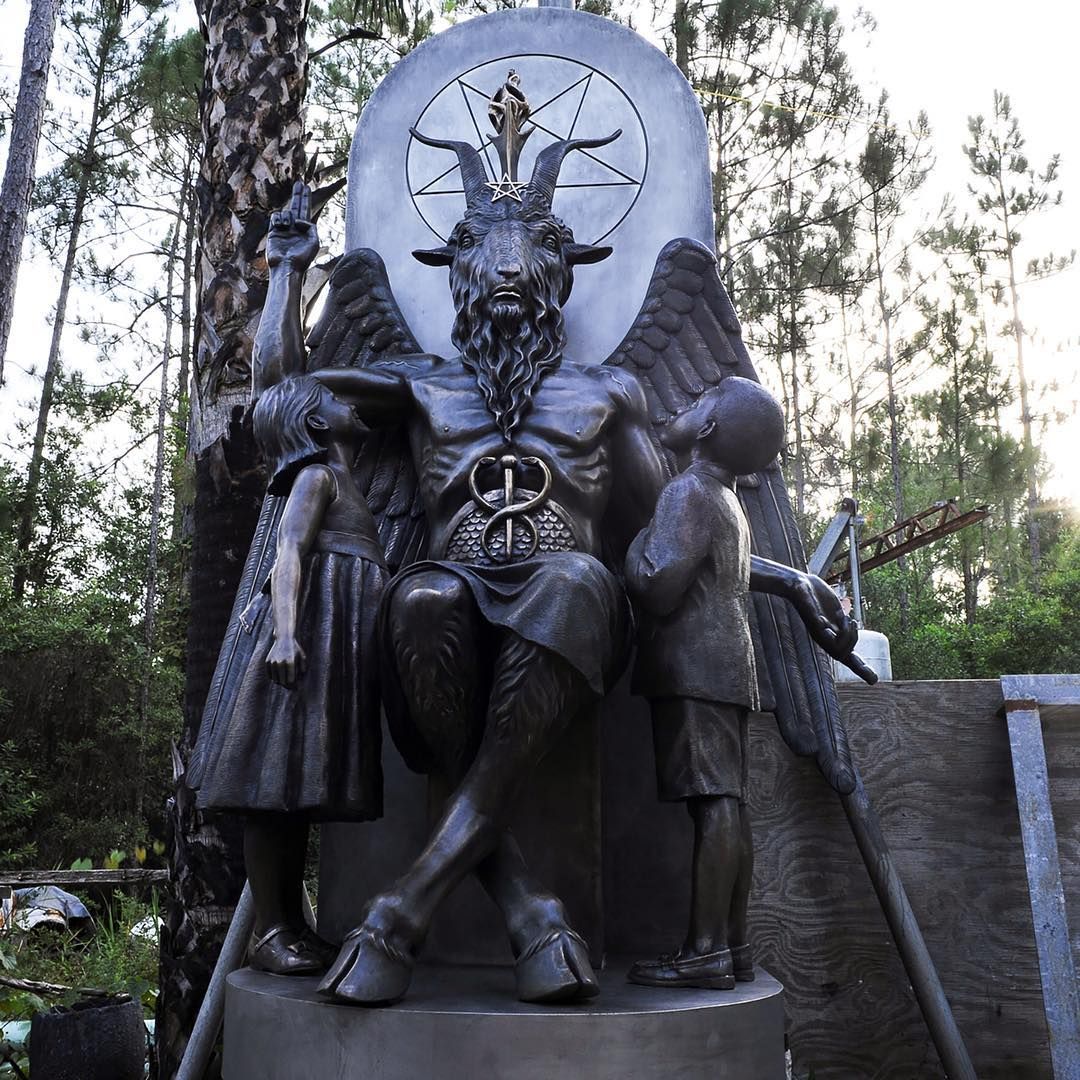- Mar 5, 2024
- 2,138
- 1,099
Cultivating The Word, Which Has The Power To Save The Soul

In a previous passage, James compared the growth of the word within us to Christ Himself being inseminated within us, and how eventually it results in Him being "birthed" out from us, much like Paul was referring to when he told the Galatians, "I travail in labor again, until Christ be formed within you." But James would now switch to using an agricultural analogy, and yet still be teaching the same principle. We must allow the "seed" of the word of God to be implanted within us before it can grow, and as he will also suggest, this is what ultimately "saves our soul" in the truest sense of the word:
Having wished, He brought us forth through the word of truth for us to be a kind of first fruits of His creations. Therefore, my dear brothers, let every man be quick to hear, slow to speak, and slow to wrath, for the wrath of man does not cultivate the righteousness of God. Wherefore, having set aside all [spiritual] filthiness, and the excrement of evil, receive with meekness the implanted word, which has the power to save your souls. (James 1:18-21)
Most English translations seem to miss this, but James was here using the metaphor of cultivation. The Greek word which appears in this text κατεργάζομαι was used regularly of "cultivation," and defined as such. It was also used in the Greek Old Testament to define Hebrew words which meant the exact same thing. Moreover, James also appears to have made reference to fertilizer as well, for he mentions the "filthiness, and the excrement of evil." The word περισσεία was likely a euphemism for manure, given that a sister noun meant literally "excrement" in Classical Greek (see alternate rendering of περίσσωμα for περίσσευμα in Liddell-Scott, P. 1387). Meanwhile, the other word ῥυπαρία literally meant "filth," and was also used to describe moral filth and spiritual uncleanness (see Revelation 22:11, Zechariah 3:3-4). Hence, James appears to have been referencing unclean spirits again who would incite us to anger and strife, and thereby stand in the way of receiving the word, like manure blocking the seed from being implanted within us.
Is there support for the notion that God would describe the influence of unclean spirits in such terms? Modern accounts of demons testify to the fact that they are indeed filthy, and can even smell like dung and rotting flesh. In some accounts they are literally covered with it, such as the following, which is taken from Bill Wiese's testimony of being taken to Hell in spirit and dropped into a cell inhabited by two incredibly evil spirits:
The creatures weren't animals, but they weren't human either. Each beast resembled a reptile in appearance, but took on human form. Their arms and legs were unequal in length, out of proportion - without symmetry. The first one had bumps and scales all over its grotesque body. It had a huge, protruding jaw, gigantic teeth, and large sunken-in eyes. This creature was stout and powerful, with thick legs and abnormally large feet. It was pacing violently around the cell like a caged bull, and its demeanor was extremely ferocious. The second beast was taller and thinner, with very long arms and razor sharp fins that covered its body. Protruding from its hands were claws that were nearly a foot long... I was extremely nauseous from the terrible, foul stench coming from these creatures. It was absolutely disgusting, foul, and rotten. It was, by far, the most putrid smell I have ever encountered. If you could take every rotten thing you can imagine, such as an open sewer, rotten meat, spoiled eggs, sour milk, dead rotting animal flesh, and sulphur, and magnify it a thousand times, you might come close. This is not an exaggeration. The odor was actually extremely toxic, and that alone should have killed me. (Wiese, 23 Minutes In Hell, P.3-4, 7)
This is actually not a new revelation but something the church has understood for centuries. Writing back in the 1600s, writers spoke of Hell in similiar terms:
The prophecy of Isaias will thus be fulfilled: "Instead of a sweet smell there shall be a stench" (Is. iii. 24). Decaying animal matter emits so horrible an odor that no one likes to go near it. But if we imagine not one tainted carcass but hundreds of thousands heaped together, the air for miles around would be so infected that it would cause the death of all in the vicinity... How much worse will it be in Hell, where the bodies will lie close to one another, without any hope of being separated. And as bad as this stench is, it is greatly increased by the presence of the devils, who naturally are far more offensive to the nostrils than the bodies of the lost. We read in the life of St. Martin that an evil spirit appeared to him on one occasion, and the stench that filled the room was so overwhelming that the Saint said to himself: "If one single devil has so disgusting an odor, what can the stench be in Hell, where there are thousands of devils all together?" (The Four Last Things, On the vile odors of Hell, Martin Von Cochem)
Demons being covered in the stench of excrement and decay appears to be why James compared demonically-incited anger to the "filth and excrement of evil." Strife-filled argumentation blocks the word of God from being implanted in our hearts and minds, just like dung can block literal seed from being implanted in the ground. Manure was spread directly on the fields during ancient times beginning in Egypt, but for seed to be deposited it would have to be moved aside. So, too, would "the wrath of man" have to be set aside to make room for the word to be received. If believers were too busy lashing out at one another, it would be impossible to receive the word from one another, and as we shall see, James' teaching was that it was the word itself which had the power to save the human soul.
Understanding True Salvation Of The Soul
There are some who teach the Parable of the Sower is about receiving 30, 60 and 100 times the financial return on one's giving, but this a false and misleading interpretation. What the Parable actually teaches is that believers need to continue cultivating the word of God within them until it multiples itself 30, 60 or 100 times over. The Lord Jesus Christ used the farming analogy numerous times, and in some parables the wheat represented believers themselves. This was the case in the Parable of the Wheat and Tares, where the tares represented those who called themselves Christians but were in reality serving the enemy, and would thus eventually be cast into "a furnace of fire," i.e. into the Lake of Fire. The wheat, however, represented the true believers, who at the time of the harvest would be gathered into God's "barns," i.e. taken into Heaven. But this was not the case in Mark 4. The focus there was on the growth of the word itself within believers, with the implication being that true salvation occurred when the word grew to its fullest extent within them, something that was entirely their responsibility to make happen. Jesus would also teach that the full cultivation of the word was in fact the responsibility of the entire church, and that the end-time harvest would not take place until it did.
Beginning with the Parable of the Sower:
And He said to them, "Unto you it is given to know the mystery of the kingdom of God, but to them that are without, all these things are done in parables... The sower sows the word. And these are the seeds where the word is being sown by the pathway, and when they hear, immediately Satan comes and takes away the word having been sown into them. And these are in like manner the seeds being sown upon the rocky ground, who, when they hear the word, immediately receive it with joy, yet have no root in themselves but are temporary. Then, with affliction and persecution having arisen because of the word, immediately they are scandalized. And these are the seeds being sown among the thorns. These are the ones hearing the word, yet the anxieties of this age, and the deceitfulness of riches, and the desires for other things entering in, choke out the word, and it becomes unfruitful. And these are the seeds having been sown upon the good ground, such as hear the word and receive it, and bring forth thirty, sixty, and one hundredfold fold." (Mark 4:14-20)
As Jesus Himself stated, the "seed" here was the word of God, and revelation concerning the mysteries of the kingdom. Thus, a 30, 60, or 100 fold increase in the "seed" represented a 30, 60 or 100 fold increase in the word growing within the believer. But the word could die away before it produced, which meant believers had to keep the word growing within them in order to be saved when all was said and done. The birds (i.e. demons, since the specific qualifier "birds of Heaven" is not present in the better texts here) came and snatched up the seed before it even had a chance to grow within those along the path, but the word was growing within the second and third groups, and significantly so. Only it grew within the first group only until persecution came, and in the latter only until thorns rose up and choked it. These believers gladly received the word within themselves and it was growing, yet because they didn't make sure that it continued to grow, it ended up dying away. This is why true Biblical salvation is not merely a one time decision but a life that must be lived out, which is why Paul said we must continue to "work out our salvation with trembling and fear."
Continued next post...

In a previous passage, James compared the growth of the word within us to Christ Himself being inseminated within us, and how eventually it results in Him being "birthed" out from us, much like Paul was referring to when he told the Galatians, "I travail in labor again, until Christ be formed within you." But James would now switch to using an agricultural analogy, and yet still be teaching the same principle. We must allow the "seed" of the word of God to be implanted within us before it can grow, and as he will also suggest, this is what ultimately "saves our soul" in the truest sense of the word:
Having wished, He brought us forth through the word of truth for us to be a kind of first fruits of His creations. Therefore, my dear brothers, let every man be quick to hear, slow to speak, and slow to wrath, for the wrath of man does not cultivate the righteousness of God. Wherefore, having set aside all [spiritual] filthiness, and the excrement of evil, receive with meekness the implanted word, which has the power to save your souls. (James 1:18-21)
Most English translations seem to miss this, but James was here using the metaphor of cultivation. The Greek word which appears in this text κατεργάζομαι was used regularly of "cultivation," and defined as such. It was also used in the Greek Old Testament to define Hebrew words which meant the exact same thing. Moreover, James also appears to have made reference to fertilizer as well, for he mentions the "filthiness, and the excrement of evil." The word περισσεία was likely a euphemism for manure, given that a sister noun meant literally "excrement" in Classical Greek (see alternate rendering of περίσσωμα for περίσσευμα in Liddell-Scott, P. 1387). Meanwhile, the other word ῥυπαρία literally meant "filth," and was also used to describe moral filth and spiritual uncleanness (see Revelation 22:11, Zechariah 3:3-4). Hence, James appears to have been referencing unclean spirits again who would incite us to anger and strife, and thereby stand in the way of receiving the word, like manure blocking the seed from being implanted within us.
Is there support for the notion that God would describe the influence of unclean spirits in such terms? Modern accounts of demons testify to the fact that they are indeed filthy, and can even smell like dung and rotting flesh. In some accounts they are literally covered with it, such as the following, which is taken from Bill Wiese's testimony of being taken to Hell in spirit and dropped into a cell inhabited by two incredibly evil spirits:
The creatures weren't animals, but they weren't human either. Each beast resembled a reptile in appearance, but took on human form. Their arms and legs were unequal in length, out of proportion - without symmetry. The first one had bumps and scales all over its grotesque body. It had a huge, protruding jaw, gigantic teeth, and large sunken-in eyes. This creature was stout and powerful, with thick legs and abnormally large feet. It was pacing violently around the cell like a caged bull, and its demeanor was extremely ferocious. The second beast was taller and thinner, with very long arms and razor sharp fins that covered its body. Protruding from its hands were claws that were nearly a foot long... I was extremely nauseous from the terrible, foul stench coming from these creatures. It was absolutely disgusting, foul, and rotten. It was, by far, the most putrid smell I have ever encountered. If you could take every rotten thing you can imagine, such as an open sewer, rotten meat, spoiled eggs, sour milk, dead rotting animal flesh, and sulphur, and magnify it a thousand times, you might come close. This is not an exaggeration. The odor was actually extremely toxic, and that alone should have killed me. (Wiese, 23 Minutes In Hell, P.3-4, 7)
This is actually not a new revelation but something the church has understood for centuries. Writing back in the 1600s, writers spoke of Hell in similiar terms:
The prophecy of Isaias will thus be fulfilled: "Instead of a sweet smell there shall be a stench" (Is. iii. 24). Decaying animal matter emits so horrible an odor that no one likes to go near it. But if we imagine not one tainted carcass but hundreds of thousands heaped together, the air for miles around would be so infected that it would cause the death of all in the vicinity... How much worse will it be in Hell, where the bodies will lie close to one another, without any hope of being separated. And as bad as this stench is, it is greatly increased by the presence of the devils, who naturally are far more offensive to the nostrils than the bodies of the lost. We read in the life of St. Martin that an evil spirit appeared to him on one occasion, and the stench that filled the room was so overwhelming that the Saint said to himself: "If one single devil has so disgusting an odor, what can the stench be in Hell, where there are thousands of devils all together?" (The Four Last Things, On the vile odors of Hell, Martin Von Cochem)
Demons being covered in the stench of excrement and decay appears to be why James compared demonically-incited anger to the "filth and excrement of evil." Strife-filled argumentation blocks the word of God from being implanted in our hearts and minds, just like dung can block literal seed from being implanted in the ground. Manure was spread directly on the fields during ancient times beginning in Egypt, but for seed to be deposited it would have to be moved aside. So, too, would "the wrath of man" have to be set aside to make room for the word to be received. If believers were too busy lashing out at one another, it would be impossible to receive the word from one another, and as we shall see, James' teaching was that it was the word itself which had the power to save the human soul.
Understanding True Salvation Of The Soul
There are some who teach the Parable of the Sower is about receiving 30, 60 and 100 times the financial return on one's giving, but this a false and misleading interpretation. What the Parable actually teaches is that believers need to continue cultivating the word of God within them until it multiples itself 30, 60 or 100 times over. The Lord Jesus Christ used the farming analogy numerous times, and in some parables the wheat represented believers themselves. This was the case in the Parable of the Wheat and Tares, where the tares represented those who called themselves Christians but were in reality serving the enemy, and would thus eventually be cast into "a furnace of fire," i.e. into the Lake of Fire. The wheat, however, represented the true believers, who at the time of the harvest would be gathered into God's "barns," i.e. taken into Heaven. But this was not the case in Mark 4. The focus there was on the growth of the word itself within believers, with the implication being that true salvation occurred when the word grew to its fullest extent within them, something that was entirely their responsibility to make happen. Jesus would also teach that the full cultivation of the word was in fact the responsibility of the entire church, and that the end-time harvest would not take place until it did.
Beginning with the Parable of the Sower:
And He said to them, "Unto you it is given to know the mystery of the kingdom of God, but to them that are without, all these things are done in parables... The sower sows the word. And these are the seeds where the word is being sown by the pathway, and when they hear, immediately Satan comes and takes away the word having been sown into them. And these are in like manner the seeds being sown upon the rocky ground, who, when they hear the word, immediately receive it with joy, yet have no root in themselves but are temporary. Then, with affliction and persecution having arisen because of the word, immediately they are scandalized. And these are the seeds being sown among the thorns. These are the ones hearing the word, yet the anxieties of this age, and the deceitfulness of riches, and the desires for other things entering in, choke out the word, and it becomes unfruitful. And these are the seeds having been sown upon the good ground, such as hear the word and receive it, and bring forth thirty, sixty, and one hundredfold fold." (Mark 4:14-20)
As Jesus Himself stated, the "seed" here was the word of God, and revelation concerning the mysteries of the kingdom. Thus, a 30, 60, or 100 fold increase in the "seed" represented a 30, 60 or 100 fold increase in the word growing within the believer. But the word could die away before it produced, which meant believers had to keep the word growing within them in order to be saved when all was said and done. The birds (i.e. demons, since the specific qualifier "birds of Heaven" is not present in the better texts here) came and snatched up the seed before it even had a chance to grow within those along the path, but the word was growing within the second and third groups, and significantly so. Only it grew within the first group only until persecution came, and in the latter only until thorns rose up and choked it. These believers gladly received the word within themselves and it was growing, yet because they didn't make sure that it continued to grow, it ended up dying away. This is why true Biblical salvation is not merely a one time decision but a life that must be lived out, which is why Paul said we must continue to "work out our salvation with trembling and fear."
Continued next post...








